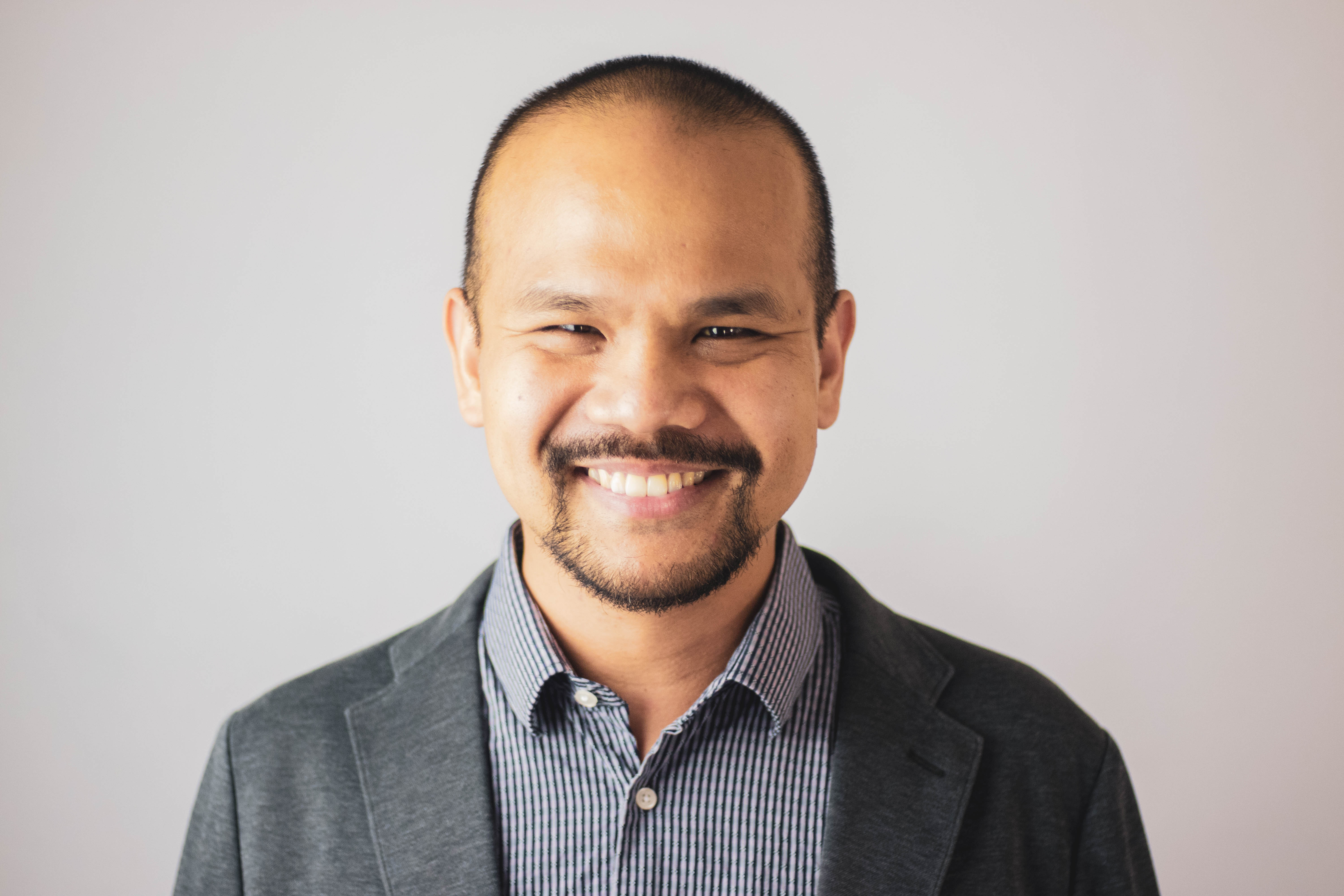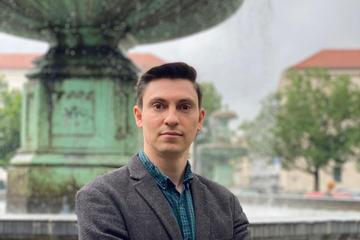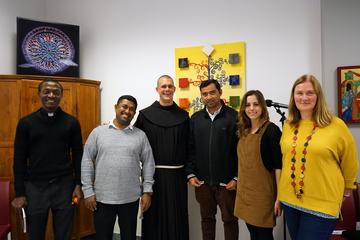
By Heather Walker
ROME — Lay Centre alumnus Dr. Matthew Tan was named the first lay dean of studies at Vianney College, the seminary of the Diocese of Wagga Wagga, Australia. The seminary is affiliated with the Urbaniana (Urban University) in Rome and can grant pontifical bachelor’s degrees. Tan began in his new role this month. He took some time to speak with us and tell us about his journey from his native Singapore to Italy to Australia.
Q. Congratulations on your new position at the Seminary of the Diocese of Wagga Wagga. You have certainly traveled far and wide over the years. You were born in Singapore and then moved to Australia. How has all this shaped your life?
Thank you so much! If I had to boil it down to one thing, it is an ongoing awareness of the coupling between being Catholic and being a migrant. We talk a lot about the Church being a pilgrim, but I think the growing role of migrant communities in many parts of the Church, especially in the West, is giving a concrete expression to this pilgrim status that we cannot ignore. I have found that my participation in the great tradition of the Church is always refracted through the experience of a migrant. Conversely, my experience of being a migrant makes no sense outside of my participation in the Body of Christ.
Q. Your academic career started with a degree in law, majoring in international relations and history. What career aspirations did you have at the time?
I had aspirations to practice law, but I realized quickly that this was not my place in life. I also had a go at following in my parents’ footsteps and becoming a teacher in legal studies and history. As God would have it, that aspiration would be fulfilled, but not in the way I had expected.
Q. What made you decide on taking up doctoral studies in theology? Did you always have an interest in this field?
At the time, becoming a theologian was the farthest thing from my mind, and it was only by a series of serendipitous coincidences — the only way I could complete my doctoral studies in international relations was to complete it in a theology department — that I was able to take up the studies necessary to become an academic, and then a theologian.
Q. There must be many milestones in your journey to Wagga Wagga. Would you like to tell us about some of them?
The most important milestone was completing my pontifical licence at the Angelicum, as this was the minimal academic qualification for the role. PhDs, because they are civil degrees, were not sufficient in this case. My other milestone was completing five years of teaching at Campion College, which gave me a solid teaching track record and which I could then build with my time as senior lecturer in theology at the University of Notre Dame in Australia. Of course, working in a seminary means that ecclesiastical as well as academic experience would be vital. This was provided by my time working at the Archdiocese of Sydney under two bishops who were interested in clergy formation and intellectual formation respectively.
Q. How impactful was your time in Rome, your Russell Berrie Fellowship in Interreligious Studies and your studies at the Pontifical University of St. Thomas Aquinas?
If anything, I would say that my career path would not have been possible had it not been for my Roman experience. In general, the Roman experience gave me an important insight into ecclesiastical culture, and it was important especially in knocking out a romanticism that I initially had. At the same time, however, it also gave me a glimpse into other parts of the Church from other corners of the world. This too is especially vital in making me be more cautious about equating a local expression of the Church with the expression of the whole, whilst at the same time ensuring that there are recognizable continuities with the tradition in each one. This kind of experience could not have been possible without the financial support that the Russell Berrie Fellowship provided. If you are laity that does not work for the Church, financial support is hard to come by and the Russell Berrie Fellowship certainly filled that gap. At the same time, the fellowship in interreligious studies at The John Paul II Center for Interreligious Dialogue (a partnership between The Russell Berrie Foundation and the Pontifical University of St. Thomas Aquinas), also provided me contact with the world of Judaism and interfaith relations, which I also would not have had. All these experiences have given me a greater sense of the universality that comes with being Catholic.
Q. As a lay man, what will be your special contribution to the academic life of Vianney College Seminary? How important is it for the laity to have this kind of role?
Laity are often put into contact with a variety of practical, pastoral and spiritual experiences that clergy may not have to face, which then translate into a pastoral circumstance for clergy to face as part of their ministry. My hope is that my presence there can be a reminder of these experiences and a reminder that the Body of Christ, being made of many parts, is also made up of many different experiences which equally contribute to the common life of the body. Pope Pius XI said that laity are the ones most engaged with the affairs of this world at a granular level, and so it is vital that our clergy be constantly put in touch with these via an attention to collaborative ministry. This may involve a proper recognition of the authority of the pastor, to be sure, but part of that authority involves being able to delegate it where appropriate.
Q. As you know, one of cornerstones of The Lay Centre’s mission is dialogue — interreligious and ecumenical. Is this an intrinsic part of your learning and life?
One of the lessons I have learned in my professional life is the importance of collaborative leadership, in which dialogue at all levels — and this includes dialogue with our non-Catholic and non-Christian brothers and sisters — contributes to the decisions made in any locale. As Joseph Ratzinger, Benedict XVI wrote, all of us are called into the communion of the Church, and part of living out that communion is the necessity of dialoging with everyone, both inside the Church and without, so that all may be drawn into the mystery of Christ.
Q. From Singapore to Rome to Wagga Wagga. It’s already quite a journey. Can we hope to see you in Rome sometime in the near future, COVID permitting?
Nothing will give me more joy than to be back in Rome and to see everyone at The Lay Centre again. May God deliver us from this pandemic soon and may he bring us all back together again!
Matthew Tan is the dean of studies at Vianney College, the seminary of the Diocese of Wagga Wagga, Australia. Previously, he was senior lecturer in theology at the University of Notre Dame Australia and a research and formation officer in the Archdiocese of Sydney. He is the author of two books. His most recent book is “Redeeming Flesh: The Way of the Cross with Zombie Jesus” (Cascade 2016). He blogs at Awkward Asian Theologian.


